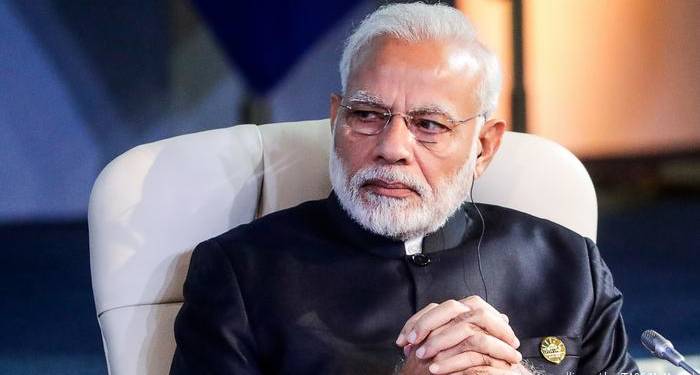Prime Minister Modi has the support of 135 crore people which makes him one of the most powerful men on this planet. He is now using his popularity and power to achieve strategic and economic gains for India, and shed dependence on goods from China.
Turning the Coronavirus Pandemic into an opportunity, PM Modi made an appeal for an Atmanirbhar India (self-reliant India). The advice seems to have been taken seriously as the Confederation of All India Traders (CAIT) has decided to boycott Chinese goods.
This is as good as sanctioning Chinese goods, except that the Modi government did not directly impose sanctions, rather it has allowed calls for a boycott of Chinese goods get louder and louder. The aim is to inflict heavy costs on the exports-based economy of China, which engaged in border aggression with India after causing the Coronavirus pandemic, and to reduce the massive $50 billion trade deficit that India has with China.
The CAIT is a humongous and influential traders’ body- it represents 7 crore traders and 40,000 trade associations. It has now announced a boycott of 3,000 Chinese products.
In fact, starting June 10, a national campaign called ‘Indian goods – our pride’ has been launched to boycott Chinese goods across the country. The campaign aims to cut down Chinese imports to the tune of Rs 1 lakh crore (USD 13 billion). An evaluation of Chinese imports seems to have been done where goods that can be avoided in the first cost up to $13 billion to India.
CAIT issued a statement reading, “CAIT has held a daily video conference since March 25 till now, in which prominent business leaders from all the states of the country participated and contemplated on the capture of India’s retail market by China. It also analysed the efforts of the people and decided that the time has come when the traders and people of the country should unite and boycott Chinese products and hence decided to launch the national campaign.”
It added, “It to prevailing circumstances of Covid, the nuances and intricacies of the campaign will be inculcated to traders via video conference. Apart from this, CAIT will also run a big campaign across the country through social media and will connect more and more people to this campaign. The CAIT has constituted a national committee to run the nationwide campaign with its vice chairman Brij Mohan Agarwal as convenor and Sumit Agrawal and Dhairysheel Patil as co-convenor besides having senior trade leaders of all states as its members.”
The Confederation itself agrees that it has been motivated by Prime Minister Modi’s call for an Atmanirbhar India and going “vocal for local” in a bid to promote Indian manufacturers.
CAIT Chandigarh chapter President Harish Garg said that they will “not only motivate traders not to sell Chinese goods but also urge Indian consumers to buy indigenous products in place of Chinese goods and in this way Prime Minister Narendra Modi’s call ‘Vocal for Local’ will also be fructified”.
The idea is to substitute imported Chinese products with Indian goods. Garg added, To achieve this goal, CAIT has prepared a comprehensive list of about 3,000 products imported from China, for which Indian substitutes and alternatives are easily available and Indian customers will also not mind because all those things are already made in India.”
The boycott is going to impose massive costs on China, and it is no less effective than sanctions imposed by the government. Anti-China sentiment has been building up all across the world, including India.
But New Delhi has made sure that it didn’t have to do a lot of heavy-lifting and has only issued an appeal for self-reliance. In the past, India has resorted to economic measures against Malaysia on Palm oil imports, after the volatile, 94-year old, former Malaysian Prime Minister Mahathir made anti-India remarks.
Reuters had reported that before imposing product-specific restrictions on Palm Oil imports, New Delhi had informally asked Palm Oil refiners and traders to avoid buying refined Malaysian Palm Oil. At the same time, India did not put any country-specific ban, but given that most of the refined palm oil was imported from Malaysia, the measure was surely targeted at Malaysian exports.
New Delhi also imposed economic costs on Turkey after Turkish President Erdogan supported Pakistan on the Kashmir issue, and interfered with India’s internal matter of abrogating Article 370.
But with China, India’s equations are different. Malaysia and Turkey are irrelevant in face of India’s economic firepower, while Beijing is India’s rival for hegemony in Asia, and a significant trading partner. The Modi government didn’t really have the option to officially impose sanctions on China.
But the Atmanirbhar appeal has ensured that the traders take a cue from the Prime Minister’s speech and make tough decisions to counter China’s export-based economy.



























